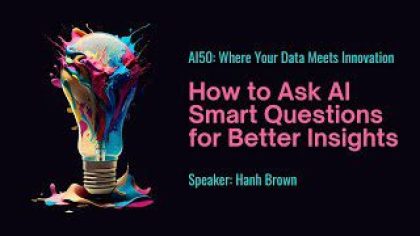Table of Contents
ToggleIn recent years, artificial intelligence (AI) has gained traction across industries, including healthcare insurance. As AI evolves, it holds promise in enhancing insurance access through efficient and accurate underwriting. However, the implementation of AI in healthcare insurance can have unintended consequences, potentially creating barriers for certain individuals.
This article examines the role of AI in the healthcare insurance industry, its potential to improve access, and the unintended barriers it may create. Ethical concerns associated with AI-driven insurance underwriting are also explored, along with different perspectives on this issue.
Understanding AI-driven Healthcare Insurance

AI-driven healthcare insurance utilizes advanced algorithms and machine learning techniques to analyze large datasets, automating the underwriting process and streamlining various insurance-related tasks. This innovative approach to insurance can bring about several benefits, such as reduced costs, increased efficiency, and personalized policy offerings. However, it is essential to recognize the potential pitfalls and ethical concerns associated with this technology.
Benefits of AI-driven Healthcare Insurance
The benefits of aI-driven healthcare insurance are significant as it can enhance the overall insurance experience. The technology can help insurers improve efficiency, reduce cost, personalize police, and make the process easier for policyholders. Here are the possible benefits of AI-driven healthcare insurance.
- Enhanced Efficiency: By automating the underwriting process, AI-driven insurance can significantly reduce the time it takes for policyholders to obtain coverage. This increased efficiency means that more people can access insurance, ultimately improving public health outcomes.
- Cost Reduction: AI-driven insurance systems can also lower costs for both insurers and policyholders. Insurers can save on administrative expenses and pass those savings onto consumers in the form of lower premiums.
- Personalized Policies: AI-driven healthcare insurance can analyze vast amounts of data to create personalized policies tailored to an individual’s unique needs and preferences. This level of customization can lead to more comprehensive and affordable coverage for policyholders.
Barriers Created by AI-driven Healthcare Insurance
Despite its numerous benefits, AI-driven healthcare insurance can also inadvertently create barriers to access for certain individuals. Some of the most notable challenges include:
- AI Bias: AI algorithms are only as unbiased as the data used to train them. If the training data contains inherent biases, such as historical discrimination or underrepresentation of certain demographics, the AI system may perpetuate these biases in its decision-making, ultimately leading to discriminatory practices in insurance underwriting.
- Loss of Human Touch: The automation of the underwriting process may lead to a loss of Human Touch, potentially making it difficult for individuals with unique or complex circumstances to obtain coverage. This could disproportionately affect marginalized or vulnerable populations.
- Privacy Concerns: The vast amounts of personal data required by AI-driven insurance systems may raise privacy concerns for some individuals, potentially deterring them from seeking coverage.
Ethical Concerns in AI-driven Healthcare Insurance

The implementation of AI in the health insurance industry raises several ethical concerns, such as the potential for AI bias and the loss of human touch in the underwriting process. In order to address these concerns, it is crucial for insurers and regulators to establish ethical guidelines and implement safeguards to minimize potential harm. Some potential measures include:
- Ensuring Diverse and Representative Data: By using diverse and representative data to train AI algorithms, insurers can minimize the risk of bias in the underwriting process.
- Human Oversight: Implementing a system of human oversight can help maintain the human touch in the underwriting process, ensuring that individuals with unique or complex circumstances are not overlooked or unfairly denied coverage.
- Transparent Algorithms: Ensuring transparency in AI algorithms can help build trust among policyholders and promote accountability within the industry. This includes clearly explaining how AI-driven insurance systems make decisions and how personal data is used.
- Regular Audits and Monitoring: Conducting regular audits and monitoring of AI-driven insurance systems can help identify and address any biases or ethical concerns that may arise over time.
- Privacy Protection: Insurers should implement strong privacy protections for policyholders’ data, ensuring that personal information is securely stored and only used for its intended purpose.
AI Underwriting and Risk Assessment
AI underwriting utilizes machine learning and data analytics to evaluate risk, coverage options, and premium rates. This enhances decision-making, improves risk management, and fosters fair pricing. Conventional underwriting relies on manual processes and human judgment, prone to errors and biases.
AI analyzes extensive data from medical records, wearables, and lifestyle factors, enabling comprehensive risk profiling. This leads to personalized pricing and broader insurance accessibility. To ensure fairness, AI algorithms must be trained on diverse data sets, avoiding biased risk assessment and pricing. Regular audits and monitoring maintain transparency and ethical practices in AI-driven underwriting.
AI-driven Claims Processing and Fraud Detection
AI-driven claims processing can significantly improve the efficiency and accuracy of the claims management process in healthcare insurance. By automating tedious and repetitive tasks, AI can help insurers process claims faster, reducing the time policyholders have to wait for their claims to be settled.
In addition to streamlining claims processing, AI can also be employed in detecting and preventing insurance fraud. Fraudulent claims can be costly for insurers and ultimately result in higher premiums for policyholders. AI can analyze large amounts of claims data to identify patterns and anomalies that may indicate fraudulent activity. By detecting and addressing fraud early, insurance companies can protect their financial interests and maintain affordable premiums for their customers.
Nevertheless, striking a balance between the advantages of AI-driven claims processing and fraud detection and safeguarding policyholders’ privacy is crucial. Insurers must establish strong data security measures and adhere to stringent ethical guidelines, ensuring responsible and purpose-driven use of sensitive information. Moreover, retaining a human element in the claims management process prevents the unjust denial of legitimate claims due to AI errors or misinterpretations.
The Benefits of AI in Healthcare Insurance Access

AI-driven healthcare insurance has the potential to revolutionize the industry by offering numerous benefits to both insurance providers and policyholders. These benefits include streamlining the insurance application process, improving accuracy in risk assessments, and enhancing customer experience through personalization. In this section, we will discuss each of these benefits in detail.
Streamlining the Insurance Application Process
One significant advantage of AI-driven healthcare insurance is the streamlined application process. Traditional applications involve extensive paperwork, lengthy questionnaires, and manual data entry, causing delays for both applicants and providers. AI simplifies and expedites this process through automated data collection and analysis, saving time and effort.
For example, AI can pre-fill application forms with existing records, like electronic medical records, reducing manual entry and minimizing errors. Real-time analysis of applicant data by AI provides instant feedback on eligibility and coverage options, empowering informed decision-making. By enhancing the application process, AI improves healthcare insurance access for a broader population.
Also read: The Crucial Role of Technology for the Elderly – Empowering the Golden Years
Improved Accuracy in Risk Assessments
AI-driven healthcare insurance systems enhance risk assessments by analyzing extensive data from diverse sources. Machine learning algorithms and data analytics create comprehensive risk profiles, considering medical history, lifestyle habits, and genetic predispositions.
This accuracy in risk assessments enables insurance providers to offer equitable pricing and coverage options, benefiting policyholders. For instance, AI systems identify higher-risk individuals, offering tailored coverage addressing those risks, while lower-risk individuals enjoy lower premiums. Granular risk assessments ensure policyholders receive suitable coverage, making insurance more accessible and affordable.
Enhanced Customer Experience and Personalization
AI-driven healthcare insurance significantly improves customer experience through personalization and tailored services. AI enables insurers to understand customers’ needs and preferences, offering relevant coverage options and additional resources addressing unique health concerns.
For example, AI analyzes wearable device and medical record data to identify health risks, suggesting preventive measures like lifestyle changes or screenings. Personalized wellness programs and telemedicine services further enhance policy value and customer satisfaction.
Moreover, AI streamlines customer service by automating tasks and providing instant responses, reducing wait times and enhancing overall experience. AI-driven healthcare insurance improves coverage accessibility, increases customer satisfaction, benefiting policyholders and insurers alike.
The Barriers and Challenges of AI-driven Healthcare Insurance
While AI-driven healthcare insurance offers numerous benefits, it also presents several barriers and challenges that must be addressed to ensure equitable access to coverage and protect policyholders’ rights. In this section, we will discuss the potential issues of algorithmic bias and discrimination, data privacy and security concerns, and the potential loss of human empathy in decision-making.
Algorithmic Bias and Discrimination
A key concern with AI-driven healthcare insurance is algorithmic bias and discrimination. When AI algorithms are trained on biased or inadequate data sets, disparities in insurance access and pricing can be perpetuated or exacerbated.
For instance, if the data used to train the AI system fails to accurately represent individuals with pre-existing conditions or from specific demographic groups, unintentional discrimination may occur. This can lead to unfair denial of coverage or higher premiums, creating barriers to accessing healthcare insurance.
To mitigate these risks, it is vital to ensure diverse and representative data sets train AI insurance systems. Regular audits and monitoring should be conducted to identify and address biases that may emerge over time.
Data Privacy and Security Concerns
In the era of AI-driven healthcare insurance, data privacy and security emerge as critical concerns. Insurers handle vast amounts of personal and sensitive information, like medical records and lifestyle data, to make coverage decisions and assess risk accurately. This raises worries about data storage, usage, and sharing, and whether policyholders’ privacy rights are adequately safeguarded.
To address these concerns, insurers must establish robust data security measures and adhere to stringent ethical guidelines for personal information usage. This involves secure data storage, limited access to authorized personnel, and explicit consent from policyholders for AI-driven decision-making.
Moreover, insurers must promote transparency regarding data collection and usage practices, providing policyholders with a clear understanding of how their information is utilized and ensuring protective measures for their privacy.
Potential Loss of Human Empathy in Decision-Making
As AI automates underwriting and claims processing, there’s a risk of losing human empathy in decision-making, especially in sensitive healthcare insurance contexts. While AI algorithms make quick and efficient decisions, they may struggle to grasp individual complexities, affecting fair and compassionate coverage and claims assessments.
To tackle this challenge, a balance between AI automation and human oversight is crucial. Insurers should incorporate human review processes, especially for complex or high-stakes cases, ensuring fair and empathetic treatment. Additionally, ongoing training and education for insurance professionals on ethical considerations in AI-driven decision-making foster a human-centric approach.
While AI-driven healthcare insurance brings benefits, it’s vital to acknowledge and address associated barriers and challenges. By tackling algorithmic bias, data privacy concerns, and preserving human empathy, insurers can harness AI’s potential to enhance coverage accessibility while minimizing potential harm.
Balancing AI-driven Advancements and Ethical Considerations

As the healthcare insurance industry continues to adopt AI-driven technologies, it is crucial to strike a balance between the potential benefits and the ethical considerations that accompany them. In this section, we will discuss how to address algorithmic bias and discrimination, ensure data privacy and security, and maintain human oversight and empathy in AI-driven healthcare insurance.
Addressing Algorithmic Bias and Discrimination
To effectively address algorithmic bias and discrimination in AI-driven healthcare insurance, insurers must adopt a multi-faceted approach that includes rigorous data collection, diverse and representative training data sets, ongoing algorithm monitoring, regular audits, and transparent governance practices. Additionally, collaboration with experts in data ethics and fairness can provide valuable insights and guidance. By implementing these measures, insurers can uphold data privacy and security standards, instilling confidence in policyholders and maintaining the integrity of AI-driven healthcare insurance:
- Diverse and representative data sets: Ensuring that the data used to train AI algorithms accurately represents different populations and does not perpetuate existing biases.
- Regular audits and monitoring: Implementing ongoing reviews of AI-driven systems to identify and address any biases or discriminatory outcomes that may arise over time.
- Collaborative development: Engaging with a wide range of stakeholders, including ethicists, data scientists, and representatives from affected communities, to develop AI-driven insurance systems that are both effective and equitable.
- Transparent algorithms: Providing insight into the decision-making processes of AI-driven systems, allowing for better understanding and scrutiny of potential biases.
Ensuring Data Privacy and Security
Protecting data privacy and security in AI-driven healthcare insurance is paramount to maintaining trust and safeguarding policyholders’ rights. To achieve this, insurers must implement robust measures, including the following:
- Secure data storage: Utilizing advanced encryption techniques and secure storage solutions to safeguard sensitive information from unauthorized access or breaches.
Limited data access: Restricting access to personal data to authorized individuals solely for legitimate purposes, reducing the risk of misuse or unauthorized sharing.
Transparent data policies: Clearly communicating data collection, usage, and storage practices to policyholders, ensuring a comprehensive understanding of how their information is used and protected.
Consent management: Obtaining explicit and informed consent from policyholders before utilizing their data for AI-driven decision-making or sharing it with third parties.
Regular audits and compliance checks: Conducting frequent monitoring and assessments of data privacy and security practices to ensure adherence to relevant laws, regulations, and industry standards.
Maintaining Human Oversight and Empathy
AI-driven systems have the potential to greatly enhance efficiency and accuracy in healthcare insurance. By implementing these measures, insurers can achieve a harmonious integration of AI-driven systems while preserving the human element necessary for empathetic decision-making. This approach promotes efficiency, accuracy, and empathy, ultimately benefiting both insurers and policyholders in the healthcare insurance industry.
- Incorporate human review processes: Implementing mechanisms for human review in AI-driven systems allows for the evaluation and validation of decisions, particularly in complex or sensitive cases. This ensures that policyholders receive fair and empathetic treatment.
- Foster a human-centric approach: Insurers should prioritize the preservation of human empathy in decision-making processes. This involves providing ongoing training and education to insurance professionals, emphasizing the ethical considerations and values of empathy when utilizing AI technologies.
- Enhance transparency and communication: Maintaining open lines of communication with policyholders is essential. Insurers should clearly communicate the role of AI in the insurance process, the limitations of AI-driven systems, and the availability of human support. Transparency helps build trust and ensures that policyholders feel heard and understood.
- Continuously assess and improve AI algorithms: Regular evaluation and refinement of AI algorithms are crucial to identify and address any biases or errors that may arise. This iterative process allows for continuous improvement and ensures that AI-driven systems align with fairness and ethical standards.
Conclusion
Artificial Intelligence holds great promise for revolutionizing healthcare insurance, providing efficient and personalized access. Predictive analytics streamline risk assessment, automate processes, and enhance customer experience. Additionally, AI predicts healthcare needs and suggests suitable insurance plans, improving health outcomes.
However, these advancements may unintentionally create barriers. AI reliance raises data privacy concerns and potential bias if not trained on diverse data sets. Safeguards must address these issues for fair and equitable access to healthcare insurance.
Furthermore, while automation accelerates processes, it can deepen the digital divide. Limited digital literacy and access may hinder individuals in navigating the increasingly digital healthcare insurance landscape.
In conclusion, embracing AI’s potential to enhance healthcare insurance access requires addressing potential barriers. A balanced approach is crucial, leveraging AI’s transformative power while mitigating disparities. Through regulation, transparency, and inclusivity, we can harness AI to revolutionize healthcare insurance access positively.
FAQs
How does AI improve healthcare insurance access?
AI can improve healthcare insurance access by streamlining the application process, automating data collection and analysis, and providing instant feedback on eligibility and coverage options. It also improves accuracy in risk assessments, allowing for more equitable pricing and tailored coverage options, and enhances customer experience through personalization and tailored services.
What are the potential barriers created by AI-driven healthcare insurance systems?
Potential barriers include algorithmic bias and discrimination, data privacy and security concerns, and the potential loss of human empathy in decision-making.
How can algorithmic bias and discrimination be addressed in AI-driven healthcare insurance?
Addressing algorithmic bias and discrimination involves using diverse and representative data sets, conducting regular audits and monitoring, engaging in collaborative development with stakeholders, and providing transparent algorithms for better understanding and scrutiny.
What measures can be taken to ensure data privacy and security in AI-driven healthcare insurance?
Insurers must implement secure data storage, limit access to personal data, provide transparent data policies, manage consent from policyholders, and conduct regular audits and compliance checks.
How can human oversight and empathy be maintained in AI-driven healthcare insurance?
Insurers should implement human review processes, foster collaboration between AI and human experts, and provide ongoing training and education for insurance professionals on the ethical considerations of AI-driven decision-making.
References
- https://www.ncbi.nlm.nih.gov/
- https://www.americanhealthlaw.org/
- https://www.eiopa.europa.eu/
- https://healthadministrationdegree.usc.edu/


















2 Comments
[…] Also read: How AI Can Improve Healthcare Insurance Access: An Indepth Analysis […]
[…] Also Read: How AI Can Improve Healthcare Insurance Access: An Indepth Analysis […]